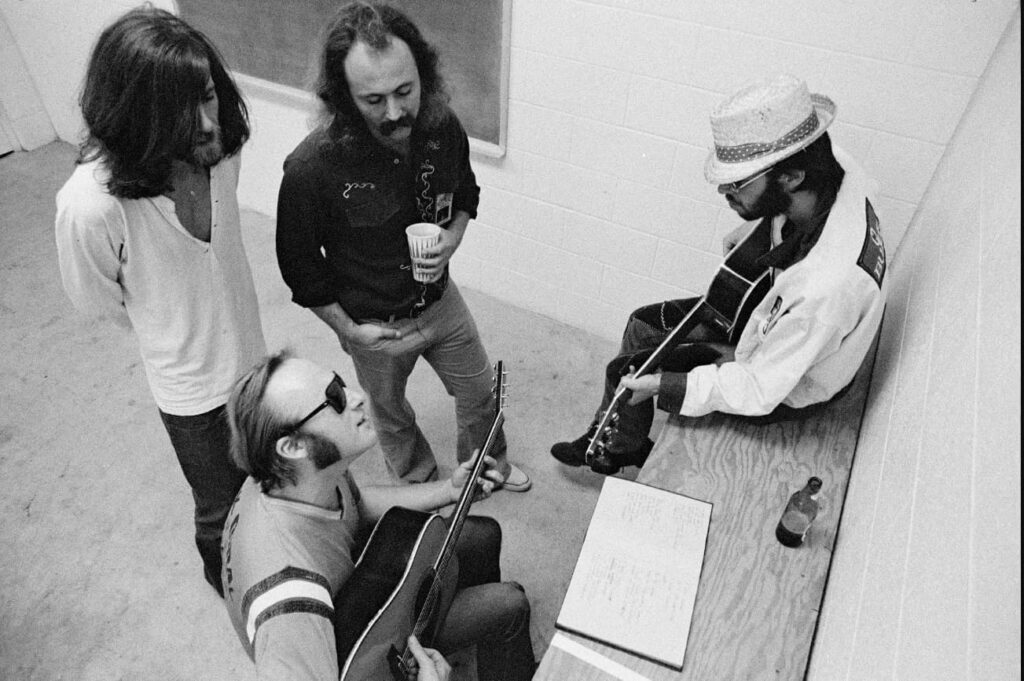
“Crosby, Stills, Nash & Young – ‘Almost Cut My Hair’: A Raw Anthem of Personal Freedom and Rebellion”
In 1970, during an era defined by counterculture movements, political unrest, and a yearning for individuality, Crosby, Stills, Nash & Young delivered one of their most impassioned tracks, “Almost Cut My Hair”. Featured on their legendary album Déjà Vu, the song didn’t just resonate as a product of its time—it became a defiant anthem for those grappling with the pressures of conformity. With its raw emotion, unfiltered lyrics, and David Crosby’s soulful delivery, the track remains a powerful statement about personal identity and freedom.
Unlike many polished folk-rock songs of the time, “Almost Cut My Hair” stands out for its unvarnished intensity. Crosby’s deeply personal vocals are the driving force, carrying a sense of vulnerability and rebellion that feels as relevant today as it did in 1970. Lines like “It increases my paranoia, like looking in my mirror and seeing a police car” vividly capture the underlying tension of the era, reflecting both societal distrust and the inner conflict of staying true to oneself.
Musically, the track is a tour de force. The interplay between Neil Young’s and Stephen Stills’ guitars is electrifying, blending bluesy grit with psychedelic edge. Each note feels spontaneous, amplifying the song’s raw, unrestrained energy. The rhythm section, anchored by Dallas Taylor on drums and Greg Reeves on bass, provides a steady yet driving foundation, allowing Crosby’s vocal performance to soar with impassioned urgency.
While “Almost Cut My Hair” was never released as a single and therefore didn’t appear on mainstream charts, its impact was undeniable. The song quickly became a favorite among fans of Crosby, Stills, Nash & Young, encapsulating the ethos of resistance and authenticity that defined the group’s music. It also served as a deeply personal outlet for Crosby, who later admitted that the song was one of the most honest pieces he had ever written.
Decades later, “Almost Cut My Hair” continues to resonate as a symbol of the fight for individuality and freedom. Whether you’re reflecting on the cultural upheaval of the 1970s or exploring its timeless themes today, the song serves as a powerful reminder to embrace your identity—even when the world pressures you to change.